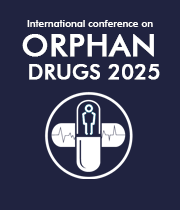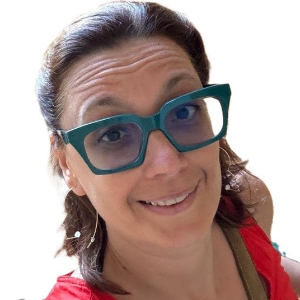Title : The person, not the disease: emotional and social aspects of rare diseases
Abstract:
Rare diseases (RDs) affect many aspects of a person and their family's life: from diagnosis to access to treatment, education, employment, socialising, and living as independently and fully as possible.
RDs can have a profound psychosocial impact on patients and their families, including stress, anxiety, depression, social isolation and stigma. Coping with the challenges of living with a rare disease, such as uncertainty about the future and difficulty finding support networks, can take a significant toll on mental health and well-being. In order to provide concrete support to this part of the community, it is therefore necessary to promote a cultural change that focuses not only on medical and therapeutic aspects, but also on the person as a whole. This means promoting a holistic approach to care and support that integrates all aspects of life so that the person with RD (and their family) can cope with clinical, social, emotional and psychological challenges of the disease. It is therefore a collective effort that must involve many stakeholders (researchers, institutions, industries, patient organisations etc.) in a harmonious way, each with their own skills and abilities, to contribute to improving the quality of life of people with rare diseases. An important node in this network at the Italian level is the Istituto Superiore di Sanita (ISS), the main centre for public health research, control and technical-scientific advice, alongside the Ministry of Health, the Regions and the entire National Health Service (NHS). The ISS structures guide health policies based on scientific evidence and deal with health at three hundred and sixty degrees, from prevention to research, including various channels dedicated to citizens, such as help lines and thematic websites. In particular, the Italian National Centre for Rare Diseases - ISS has set up the national telephone helpline for rare diseases, TVMR [Telefono Verde Malattie Rare]. This helpline is free of charge and uses a counselling-based approach to inform patients, their families, health professionals and the community at large about issues related to rare diseases. It is staffed by a team of psychologists and doctors trained and experienced in telephone counselling, public health policy and care of people with rare diseases. They are trained to support, listen, provide emotional support, navigate and link people to health resources and services throughout Italy and, for some issues, internationally.


